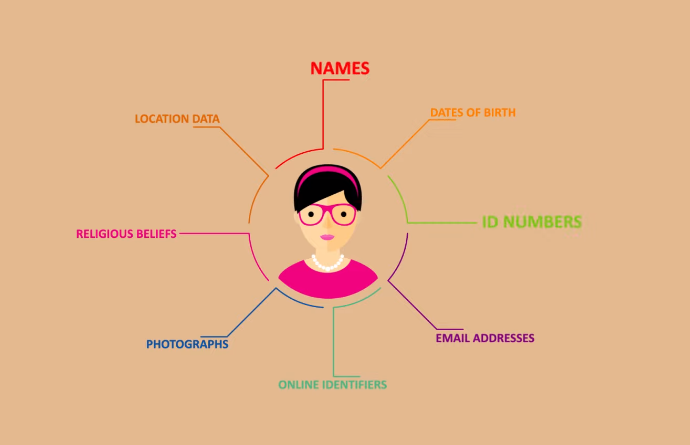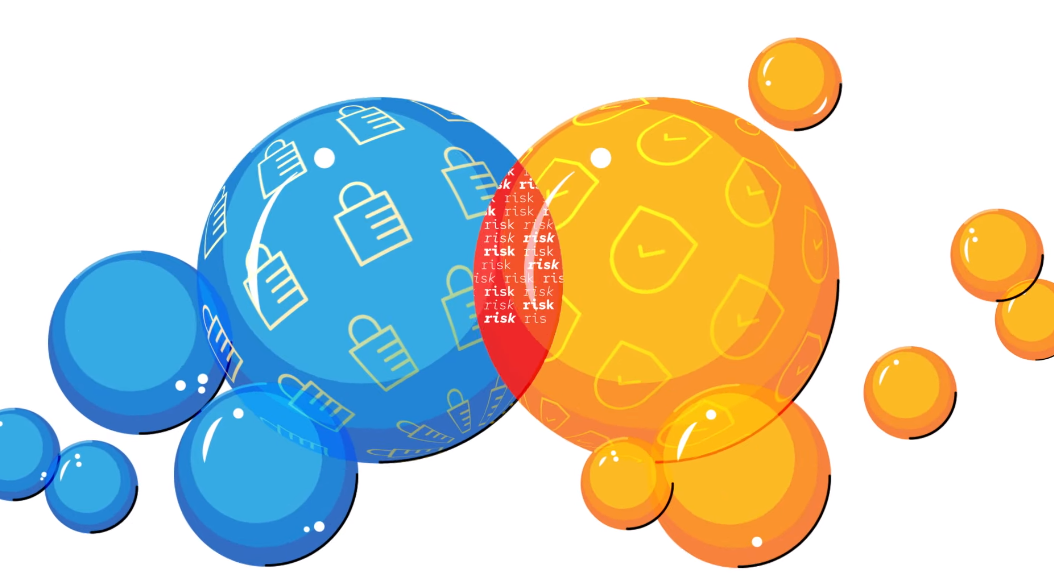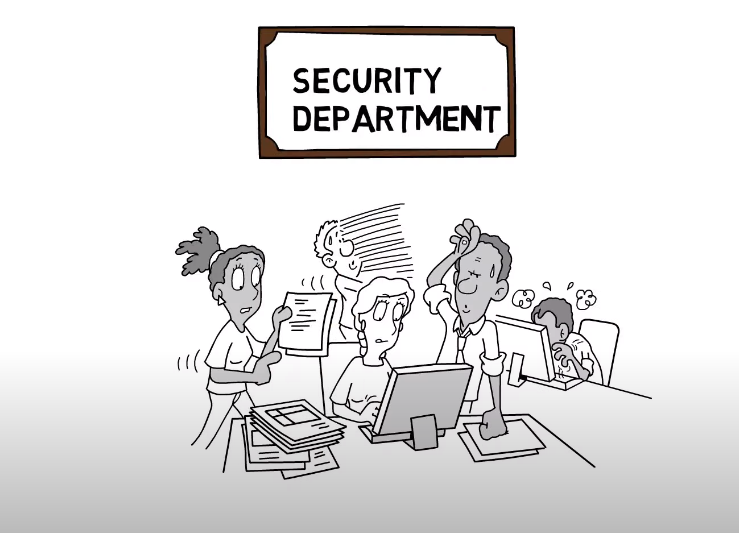Introduction
A Data Privacy Officer (DPO) is a professional responsible for ensuring that an organization complies with data protection laws and regulations. The DPO acts as an independent advisor to the organization on all matters related to privacy and data protection, serving as a liaison between the organization, its employees, and regulatory authorities. They are responsible for developing policies and procedures related to data privacy and security, conducting regular assessments of potential risks to personal information processing activities, and ensuring compliance with legal requirements.
Understanding The Regulatory Landscape

The regulatory landscape of data privacy is constantly evolving and can be complex to navigate, which makes it crucial for companies to have a Data Privacy Officer (DPO) who understands the requirements and implications of these regulations. The DPO’s responsibilities include ensuring that the company complies with relevant privacy laws and regulations, such as GDPR, CCPA, and HIPAA. They must also stay informed about any changes or updates in privacy legislation and implement appropriate measures accordingly.
As part of their role, DPOs must maintain records of data processing activities within their organization. This includes documenting why personal data is being collected, how it’s used, where it’s stored, who has access to it, how long it will be retained before being deleted or destroyed etc. Additionally, the DPO must conduct regular audits to ensure that all employees are adhering to established policies and procedures regarding data handling.
Overall, having a knowledgeable DPO is essential for companies dealing with sensitive information as they play a critical role in ensuring compliance with regulatory frameworks while keeping customers’ personal information safe from unauthorized access or misuse by third parties.
Key Responsibilities Of A Data Privacy Officer
Implementing And Maintaining Data Privacy Policies And Procedures
The implementation process starts by identifying potential risks that might affect the organization’s data security. They set up a framework for managing these risks through regular risk assessments and audits. This framework should also include reporting protocols in case of any breach or violation. After establishing these policies and procedures, it’s essential to monitor employees’ compliance levels through training programs and mock drills.
Maintaining data privacy policies requires continuous updates based on changes in regulations or technology advancements. With every new development in the field of cybersecurity and data protection, the Data Privacy Officer must review existing policies and make necessary amendments that align with current best practices.
Ensuring Data Security And Risk Management

A DPO is responsible for ensuring that all personal data the organization collects, processes, or stores comply with relevant privacy regulations. They also oversee the implementation of policies and procedures that minimize risks associated with handling personal data. By doing so, they help protect both customers’ and employees’ sensitive information from unauthorized access or disclosure.
In addition to mitigating risks associated with personal data handling, a DPO must also be aware of other potential risks to an organization’s operations. For instance, they should be knowledgeable about cybersecurity threats such as ransomware attacks or phishing scams that may compromise sensitive company information.
Managing Data Breaches And Incidents

A DPO should have a well-defined incident response plan that outlines the steps to be taken in case of a data breach or incident. This plan should include procedures for containing the breach, assessing its impact, notifying affected parties and authorities if required, and restoring normal operations.
When an incident occurs, it’s essential to act quickly to contain the damage and mitigate risks. This involves identifying the type of breach, determining its scope and severity, and taking appropriate measures such as isolating systems or shutting down services temporarily. The DPO must also work with relevant stakeholders such as IT teams, legal counsel, and public relations personnel to coordinate efforts effectively.
Conducting Privacy Impact Assessments (PIAs)
The PIA process typically involves four key stages: scoping, data flow mapping, risk assessment, and documentation. In the scoping stage, the scope of the PIA is defined based on factors such as the type of personal data involved, processing purposes, and potential impact on individuals’ privacy rights. Data flow mapping involves documenting how personal data flows through an organization’s systems and processes. Risk assessment involves evaluating potential privacy risks associated with each step in the data flow map. Finally, documentation involves preparing a report detailing findings from the risk assessment and providing recommendations for mitigating identified risks.
By properly executing this process as part of their responsibilities as DPOs companies can build a culture of transparency around personal information handling practices that engender trust among employees and customers alike – this only stands to benefit all parties involved in any given business ecosystem over time!
Monitoring And Reporting On Compliance
Data Privacy Officer (DPO) ensures that an organization complies with relevant data protection laws and regulations. To achieve this, DPOs need to establish robust monitoring and reporting mechanisms that track compliance-related activities across the organization.
Effective monitoring involves establishing clear policies around data collection, processing, and storage. These policies should be communicated throughout the company along with regular training sessions to ensure employees understand their obligations under different privacy laws.
Reporting on compliance requires DPOs to keep accurate records documenting all aspects of data processing activities within the organization. This includes maintaining up-to-date inventories of personal data holdings, managing breach notifications and conducting privacy impact assessments (PIAs). By doing so, DPOs can provide management teams with regular updates on adherence to regulatory requirements while identifying areas where improvements are needed.
Skills And Qualifications Required For A Data Privacy Officer
Education And Training
Aspiring DPOs may pursue education and training programs that focus on data privacy law, information security, risk management, and compliance. These programs can range from online courses to full-time graduate degrees in fields like cybersecurity or information technology. Additionally, professional certifications such as Certified Information Privacy Professional (CIPP) or Certified Information Systems Security Professional (CISSP) can demonstrate proficiency in the field.
Technical And Analytical Skills
Technical and analytical skills are essential for a Data Privacy Officers as they need to have an in-depth understanding of data privacy laws, regulations, and their applicability. As part of their role, Data Privacy Officers are responsible for reviewing company policies and procedures to ensure compliance with data protection laws. This requires a strong understanding of technical concepts such as data mapping, risk assessment, data classification, and incident response planning.
Data Privacy Officers also need to possess excellent analytical skills to identify potential risks and vulnerabilities that may lead to data breaches. They must be able to analyze complex information from various sources such as network logs, system configurations, access controls or user behaviour logs. With this information, they can develop effective strategies on how to mitigate these risks or incidents.
Communication And Leadership Skills
A DPO must be able to communicate effectively with all levels of an organization, from executives to individual employees. This includes not only verbal communication but also written communication such as policies and procedures. Clear communication is essential for ensuring that everyone understands the importance of data privacy and their responsibilities in protecting it.
The DPO must be able to inspire confidence in others and lead by example in promoting a culture of data privacy within the organization. This includes setting expectations, providing guidance, and making difficult decisions when necessary. A strong leader will help ensure that data privacy is taken seriously throughout the organization and that everyone understands its importance.
Business Acumen
A DPO with a keen sense of business knowledge can understand the impact of data privacy regulations on their organization’s bottom line. They can also identify and mitigate potential risks that could lead to regulatory fines and reputational damage.
In addition, a DPO with good business acumen can effectively communicate the importance of data privacy compliance to their colleagues and senior management. By speaking in terms of business outcomes, such as customer trust and brand reputation, they can help stakeholders understand why investing in data privacy is crucial.
Challenges Faced By Data Privacy Officers
Balancing Data Privacy With Business Objectives
One of the primary challenges faced by data privacy officers is balancing data privacy requirements with business objectives. Organizations often collect and use customer data to drive sales and marketing efforts. Data privacy officers need to ensure that this data is collected and used ethically while still supporting business objectives. This requires them to work closely with other departments such as IT, legal, marketing, and sales to strike a balance between compliance and profitability.
Dealing With Complex And Ambiguous Regulations
With new laws and regulations being introduced all the time, it can be difficult for organizations to stay up-to-date with changing requirements. Moreover, when dealing with global operations or cross-border transfers of personal data, compliance can become even more complex due to varying legal frameworks across different jurisdictions.
To navigate this regulatory minefield effectively, data privacy officers need not only a thorough understanding of relevant laws but also constant vigilance in tracking emerging trends and updates.
Managing Stakeholder Expectations
As the primary point of contact between an organization and its stakeholders, the DPO must establish clear communication channels to ensure that stakeholders understand their rights concerning data privacy. The DPO must also maintain transparency in all processes related to data privacy, including data handling and processing, risk assessment and management, among others.
Role Of Data Privacy Officer In Data Governance
Collaboration With Data Governance Teams
The collaboration between the DPO and the data governance team involves identifying potential risks associated with data processing activities within an organization. This includes designing methods for mitigating these risks and ensuring that adequate security measures are in place. Working together also helps organizations identify which third-party vendors should be engaged in handling sensitive information.
Ensuring Data Quality And Integrity
One way to ensure data quality is through regular audits. Auditing provides an opportunity to identify errors or inconsistencies in data that may compromise its integrity. By conducting routine checks on databases, organizations can monitor changes made to the information, verify the accuracy, detect unauthorized access, and prevent fraud.
Another crucial aspect of ensuring data quality is maintaining secure storage systems. A robust security infrastructure minimizes the risk of external attacks or internal breaches that could affect the accuracy or completeness of stored data. Employing encryption technology can provide another layer of protection by safeguarding sensitive information from unauthorized access.
Identifying And Mitigating Data Privacy Risks
To mitigate privacy risks DPO should conduct regular privacy impact assessments (PIAs) on new or modified systems or processes that involve personal data. This helps identify any potential privacy concerns early in the development process and allows for corrective action before implementation. Additionally, DPOs should ensure that all employees receive comprehensive training on data protection policies and procedures. This can help reduce human error – such as accidental breaches caused by poor security practices – which can be a significant source of privacy risk for organizations.
Supporting Business Objectives With Data Privacy In Mind
DPOs are responsible for ensuring the proper collection, storage, use, and disposal of sensitive information across an organization. They work closely with other departments and stakeholders to ensure compliance with applicable laws and regulations regarding data protection.
FAQs
What Is The Difference Between A Data Privacy Officer And A Data Protection Officer?
A data privacy officer is responsible for ensuring that a company’s data processing activities comply with legal requirements related to individual privacy rights. This includes implementing policies and procedures for handling personal information, responding to individuals’ requests for access to their data, and addressing any breaches of information security.
On the other hand, a data protection officer is responsible for ensuring that all of a company’s personal data processing activities comply with relevant laws and regulations. This includes not only protecting individuals’ privacy rights but also safeguarding against unauthorized access or disclosure of sensitive information.
What Are The Main Regulatory Frameworks For Data Privacy?
The main regulatory frameworks for data privacy include the General Data Protection Regulation (GDPR), the California Consumer Privacy Act (CCPA) and the Health Insurance Portability and Accountability Act (HIPAA).
How Can Organizations Ensure Compliance With Data Privacy Regulations?
Organizations need to ensure that they comply with data privacy regulations by appointing a Data Privacy Officer (DPO). The DPO is responsible for ensuring that an organization’s data protection policies are up-to-date, and employees are aware of their responsibilities. They should also monitor compliance with regulations such as the General Data Protection Regulation (GDPR) and the California Consumer Privacy Act (CCPA).
The DPO should work closely with other teams within the organization to identify potential risks to personal data, including those associated with third-party vendors or suppliers. They should also carry out regular audits on how the company collects, processes, stores and shares personal information. Additionally, they must ensure that all employees receive adequate training on data protection laws.
Conclusion
The role of a Data Privacy Officer (DPO) is critical in today’s business environment, where data privacy and protection are paramount. A DPO plays a vital role in ensuring that an organization is compliant with data protection laws and regulations. They serve as the link between the organization and regulatory authorities, ensuring that all necessary measures are taken to protect personal data.
